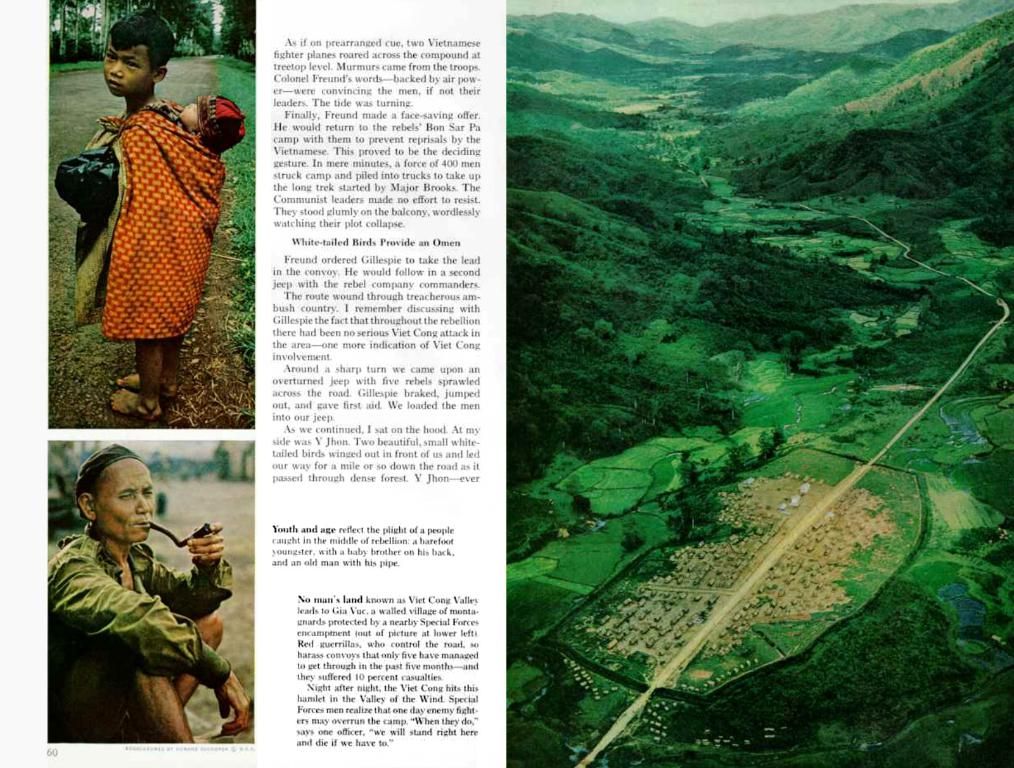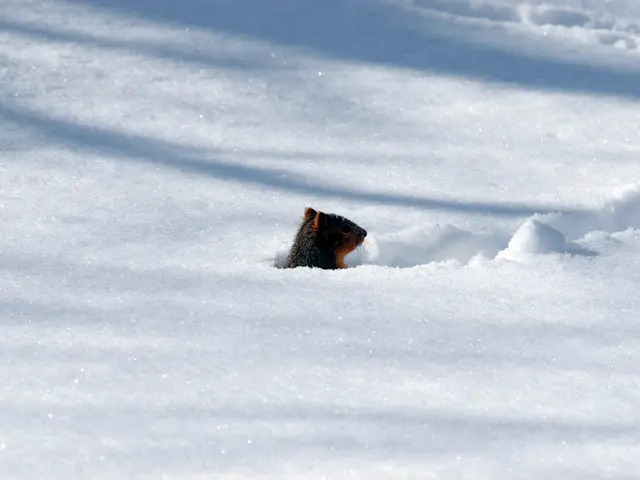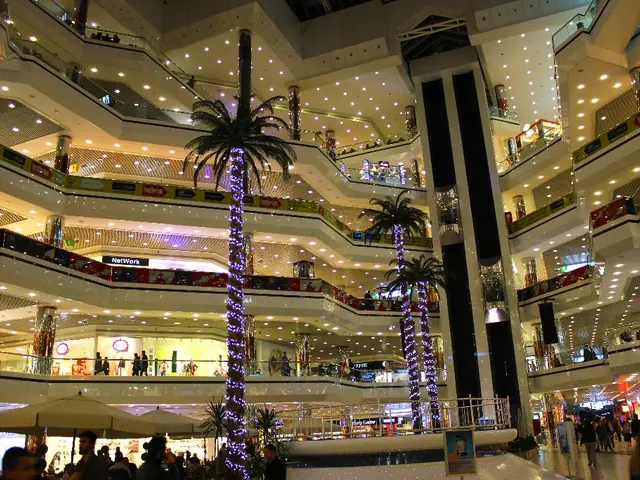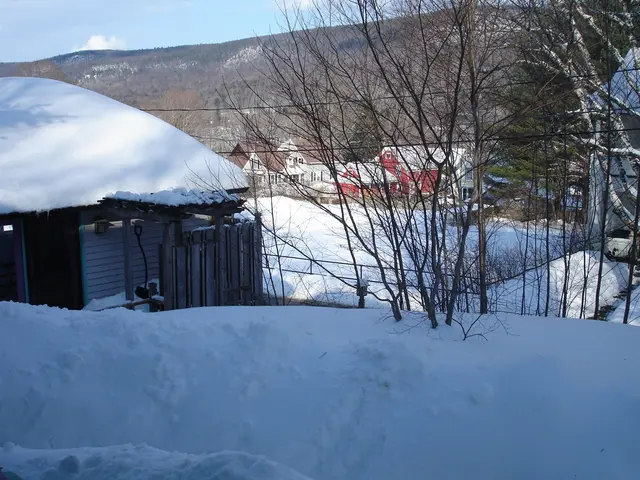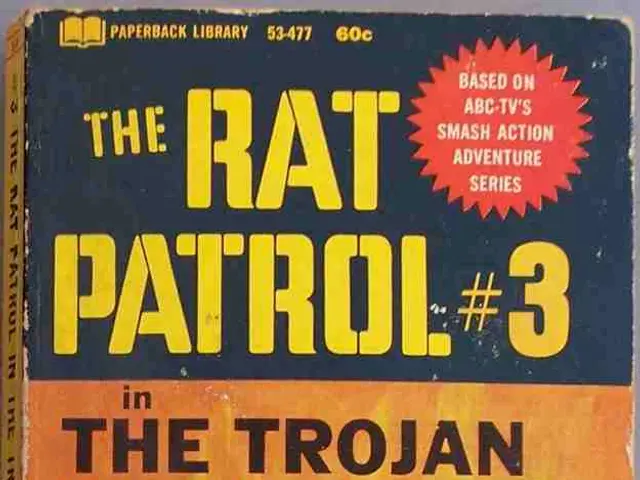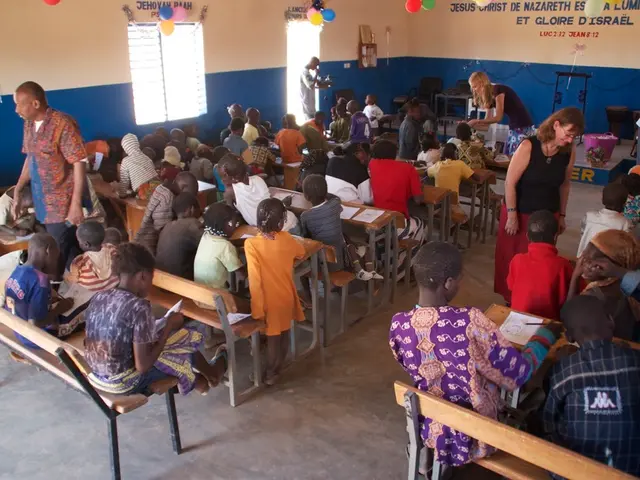Motorists in Penang, be alert: Lane closures and altered routes are imminent as The Light Interchange moves forward.
Fight for Sabah's Future: GRS vs. National Coalitions in PRN17
KOTA KINABALU, June 13 - As Sabah gears up for its 17th state election (PRN17), the political landscape is shifting, with the promise of a hotly contested battle between state-based parties and the major national coalitions.
The rallying cry "Sabah for Sabahans" is gaining traction as Gabungan Rakyat Sabah (GRS), the ruling state coalition, navigates a sea of shifting alliances and mounting questions about federal influence in state affairs.
Home Is Where the Heart Is
In recent years, Sabah-based parties - including GRS components Parti Solidariti Tanah Airku (STAR) and Parti Bersatu Sabah (PBS), as well as opposition party Warisan - have embraced the role of defenders of state rights under the Malaysia Agreement 1963 (MA63).
GRS's key component party Parti Gagasan Rakyat Sabah is largely composed of Umno-turned-Bersatu leaders who left their former party to seek a more local platform. They argue that only indigenous parties truly understand the state's needs and aspirations - and are best equipped to resist federal dominance.
Political analyst Bridget Welsh agrees that this grassroots approach holds merit, with the political current leaning toward the formation of a "Sabah bloc." However, the exact configuration of alliances will be crucial to the outcome.
"Anti-federal (especially anti-Umno) sentiments are strong," Welsh said.
Coalition Shuffling in Limbo
This local-first sentiment has also been fueled by Sarawak's recent success in securing greater control over its oil and gas resources. Many Sabahans are now asking: "If Sarawak can do it, why not us?" Despite strong internal calls for independence, Chief Minister and GRS chairman Datuk Hajiji Noor initially expressed interest in continuing cooperation with current state government partner Sabah Pakatan Harapan (PH).
However, Sabah PH's alliance with Sabah Barisan Nasional (BN) - former allies turned opposition - has shaken Hajiji's position. The two national coalitions described this surprising move as a pragmatic step to ensure political stability and foster good relations between state and federal governments.
In response, Hajiji declared that GRS was ready to contest the election on its own if Sabah PH proceeded with the alliance. Prime Minister and PH chairman Datuk Seri Anwar Ibrahim later agreed to include GRS in the election coalition. Since then, Hajiji has kept the door open to discussions but has emphasized the importance of a Sabah-based party leading the state government.
Meanwhile, Sabah BN chairman Datuk Bung Moktar Radin has dismissed any prospect of working with GRS until after the election, citing past "betrayals" and broken promises.
The Autonomy Gamble
While the allure of going it alone is strong, political analyst Tony Paridi Bagang cautions that GRS may face increased scrutiny if it decides to contest on its own. He highlights potential challenges such as "money politics," political machinery, and the lingering impact of the recent whistleblowing scandal involving mining licenses.
University Malaysia Sabah senior lecturer Lee Kuok Tiung, on the other hand, believes that GRS is more likely to maintain its current set-up with PH. However, he also suggests that there may still be a collision course in certain seats.
The Madani Factor
Despite the strained relationship with Sabah BN, GRS may find it beneficial to forge alliances to gain broader support across Sabah. After all, Prime Minister Anwar Ibrahim has expressed a desire to maintain good relations with both GRS and Umno's chief, Zahid Hamidi.
With the growing fragmentation of parties potentially leading to multi-cornered fights in many seats, split votes may provide unexpected advantages. In this high-stakes game, analysts predict that the election could result in a hung assembly or even repeat the chaotic post-election realignments of the 2020 polls.
If the election becomes a contest between local versus national parties, the outcome will shape Sabah's political landscape and redefine its federal-state relations. All eyes are now on the alliances, manifestos, and the voters' sentiments.
Footnotes:1. The Malaysian Insight, "Sabah Pakatan given green light to negotiate with Barisan Nasional"4. The Edge Markets, "What the Sabah state election hold for the GRS and PH coalitions"5. The Star, "GRS prepared to contest alone if sabah PH persists with opposition alliance"3. The Star, "GRS may contest general election independently, to be decided at next meeting, says Hajiji"
- The politically charged atmosphere in Sabah ahead of PRN17 has sparked debates about the role of Sabah-based parties in safeguarding the state's rights under MA63, with Parti Gagasan Rakyat Sabah, a key component of the ruling GRS coalition, advocating for indigenous parties to prioritize Sabah's needs and aspirations.
- The general news landscape is abuzz with discussions about the shifting alliances within Sabah's political sphere, with some forecasting the formation of a "Sabah bloc" as opposition party Warisan joins forces with GRS components STAR and PBS.
- As GRS considers contesting the election independently due to unsettled relations with Sabah PH and Sabah BN, political analyst Tony Paridi Bagang warns about potential challenges such as "money politics," political machinery, and the impact of the recent mining license scandal.
- In the midst of the bargaining for power and potential alliances leading up to the election, political analyst Bridget Welsh emphasizes that the configuration of these alliances will decisively influence the outcome of PRN17, shaping Sabah's political future and its relations with policy-and-legislation and war-and-conflicts at the federal level.
